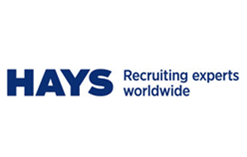Akash Marwaha, Hays managing director in Scotland, explains how a telephone interview – when managed well – can help employers find the best fit
“Very often, CVs only tell half a story. You find out the other half with a face-to-face interview, or in the current climate, a video call. This is fine if the candidate turns out to be the perfect fit. But if not, a lot of time, planning and preparation is wasted.
“Telephone interviews are a time and cost-efficient way to build a shortlist of only the strongest and most interested candidates to invite for a face-to-face interview. They are also a good way of assessing communication skills, clarity of thought and whether you think there will be a rapport – but only if they’re conducted properly.
“It’s all very well asking a lot of questions, but are they the right questions? Before the interview identify your “must have” criteria which must be met before setting up a face-to-face or video interview. Remember, the telephone interview should be the stage at which you decide whether the candidate has the core essentials needed to be able to do the job, and whether these are sufficient to justify the next stage.
“Aim to establish a rapport. The telephone process doesn’t have to be sterile and a quick-fire questioning session. After all, if you adopt a warmer, personable approach, you’re more likely to make the candidate feel relaxed and able to answer your questions, giving you more of the information you need to make an informed decision.
“Whilst you’re on the call, don’t multitask, check your work emails or worse, answer other calls. And make sure you’re interviewing in a quiet area where you won’t be interrupted. If you aren’t fully present (and they will be able to tell) not only will this deter the candidate, but you won’t be able to get the information you need, and the time-saving element of the telephone interview stage becomes a false economy.
“Can they take it or leave it? Telephone interviews are also a good chance to separate the candidates who are really keen on the opportunity from those who aren’t taking it seriously. Did the candidate answer the phone promptly and professionally, and make the effort to have the call in a quiet place? Did they appear to have done their research, demonstrating some level of pre-existing knowledge about the organisation? Did they have questions for you about this position? If not, this could indicate that they aren’t taking it seriously enough to prepare for the first stage of interviewing, and aren’t enthusiastic enough to warrant a face-to-face interview.
“Set aside 40 minutes for the interview but try and stick to 30, and keep it structured. A good framework is this: five minutes introducing yourself and the role, 20 minutes for questions and answers, and five minutes for their questions and to wrap up. Then be completely clear on the next steps and whether you wish to go to the next stage of the interview process.
“At times like these, the importance of using the telephone – and all forms of communications technology – efficiently has never been in clearer focus. Like most things in business, preparation and planning can bring major benefits.”

